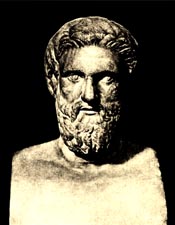Women at the Festival
, translated by Theodoridis, G., (contributor-contact-email)
Aristophanes’ play Thesmophoriazusae or ‘Women at the Festival,’ first staged in 411 BC, is a comedic critique of societal norms, particularly focusing on women’s roles and the influence of the playwright Euripides. The plot revolves around Euripides, who learns that women, outraged by his negative portrayal of them in his plays, plan to kill him at the Thesmophoria festival. Euripides persuades his relative, Mnesilochus, to disguise himself as a women and spy on the conspirators. Mnesilochus, dressed in women’s attire, infiltrates the festival, but his true identity is eventually discovered, leading to his arrest.
The play humorously portrays the women conducting their assembly with democratic procedures, paralleling the male-dominated Athenian democracy. The narrative includes a series of absurd scenes with Euripides attempting to rescue Mnesilochus through various disguises and theatrical tactics, including impersonating characters from his plays. Eventually, Euripides negotiates with the women, promising not to insult them in his future works, and manages to free Mnesilochus. The play ends with the successful escape of Mnesilochus, orchestrated by Euripides, despite the interference of Athenian authorities. Thesmophoriazusae is known for its parody of Athenian society and satirical representation of Euripides.

Theodoridis, G.,
Support Open-Access:
Your contribution keeps our classical translations available to all. Every dollar helps support classics education and funds the expansion of our catalogue. Value what we do? Donate now.
File Downloads:
© Copyright, All Rights Reserved. This work may be freely reproduced, stored and transmitted, electronically or otherwise, for any non-commercial purpose. Conditions and Exceptions apply.